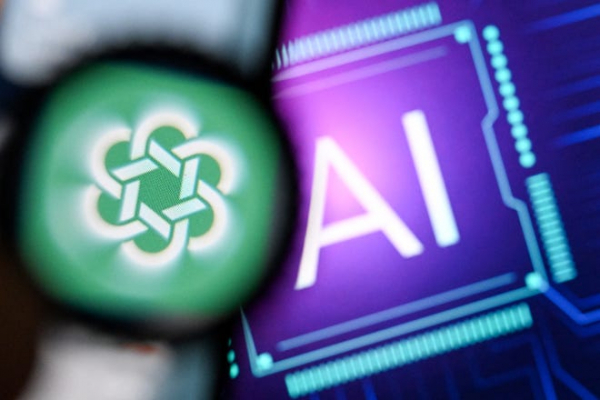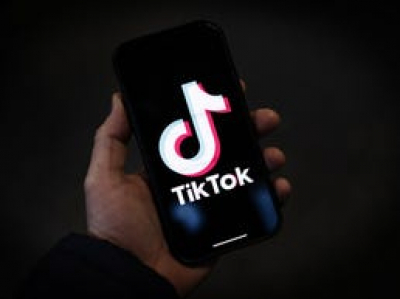

Unintentional Infraction: Alleged Cheating After Grammarly-Checked Paper Submission
As Grammarly continues to evolve, offering "strategic suggestions" to its vast user base, concerns arise regarding its impact on academic integrity. Despite its growing sophistication, this enhancement poses a dilemma for students, potentially jeopardizing their academic standing.
Marley Stevens, a student at the University of North Georgia, found herself embroiled in controversy when her use of Grammarly led to accusations of "unintentional cheating." Her experience, shared widely on social media, highlights the risks associated with relying on AI for academic support. Stevens received harsh penalties, including academic probation and a jeopardized scholarship, signaling a troubling trend affecting many students who utilize similar tools.
The case underscores the complex relationship between artificial intelligence and education, emphasizing the need to view AI as a supplement rather than a replacement for genuine academic effort. While concerns about plagiarism have long dominated discussions surrounding AI's role in academia, the emergence of Grammarly's "strategic suggestions" adds a new dimension to the debate.
Institutions like Deerfield Academy have taken a proactive stance, prohibiting the use of generative AI to safeguard academic integrity. However, the widespread adoption of Grammarly by educational institutions, with over 3,000 signing up for institutional accounts, complicates matters. The fluctuating endorsement of Grammarly by universities, exemplified by the University of North Georgia's inconsistent promotion, reflects the uncertainty surrounding its role in education.
As schools navigate this ethical minefield, discrepancies in policies regarding AI usage threaten to erode the universal standard of academic integrity. Without consistent guidelines, students face ambiguity regarding what constitutes acceptable academic practice, undermining the foundation of scholarly ethics. Addressing this issue requires a collective effort to reconcile the benefits of AI with the imperative of maintaining academic honesty across educational institutions.
Adherence to the rules regarding Grammarly is paramount for me, yet the ongoing discourse surrounding its assistance echoes a historical debate reminiscent of the controversy surrounding calculator use in schools. In the 1970s, concerns arose that calculators might overshadow traditional math instruction, but subsequent research dispelled these fears. Fast forward five decades, and calculators are now integral to certain courses and examinations, demonstrating that assistive technology complements rather than replaces fundamental learning experiences.
Today, our educational focus has shifted towards fostering adaptability and creativity, prioritizing critical thinking over rote memorization. This evolution has seen some schools eschew spelling tests in favor of cultivating higher-order cognitive skills. Similarly, the role of Grammarly and similar tools is not to usurp grammar instruction but to reinforce it, serving as a modern-day grammar refresher.
While technically considered artificial intelligence, autocorrect and programs like Grammarly function to enhance learning rather than undermine it. Penalizing students for utilizing such tools would be excessive, as they are designed to accommodate the evolving landscape of education. However, the ethical implications of Grammarly's use extend beyond academic integrity, intersecting with financial considerations such as scholarships and student loans.
Marley Stevens' ordeal underscores the need for technology companies to consider the unintended consequences of enhancing their products' generative capabilities. Likewise, educators must carefully weigh the impact of banning such tools on students' learning experiences. Ultimately, the proliferation of AI underscores the importance of ensuring that technological advancement aligns with ethical principles, safeguarding the integrity of our work and preserving the essence of genuine learning.
As a high school junior at Deerfield Academy and a member of the school's Honor Committee, I am acutely aware of the significance of maintaining academic integrity in the age of AI. It is imperative that we strike a balance between leveraging technology to augment learning and preserving the integrity of scholarly pursuits. Failure to do so risks compromising the very foundation of education, leaving us all poorer for it.
In conclusion, the ongoing debate surrounding the use of Grammarly and similar AI tools highlights the complexities of integrating technology into education while upholding academic integrity. While these tools offer valuable assistance to students, their evolving capabilities raise ethical questions and pose potential risks to students' academic standing and financial well-being.
As we navigate this terrain, it is essential for technology companies to consider the broader implications of their products and for educators to strike a balance between embracing innovation and preserving the essence of genuine learning. Ultimately, our goal should be to harness the potential of AI to enhance education while ensuring that integrity remains paramount.
By fostering dialogue, establishing clear guidelines, and promoting responsible use of technology, we can navigate this intersection of AI and education with integrity and foresight. Only then can we fully harness the benefits of technological advancement while safeguarding the principles that underpin our educational pursuits.








